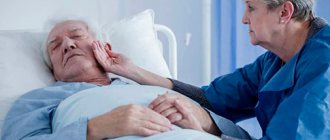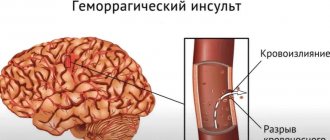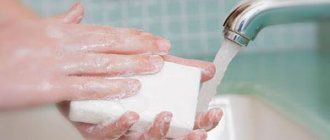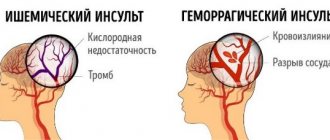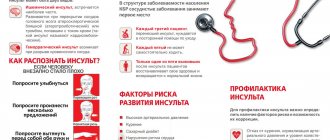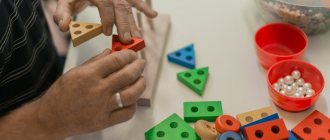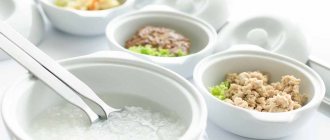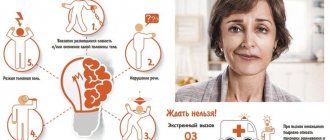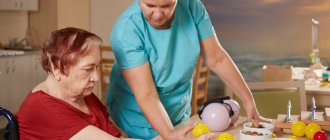Cognitive processes
There are three types of cognitive impairment after a stroke:
- Damage to one of the cognitive functions: memory (amnesia), the ability to perform any actions (apraxia), impairment of visual, auditory, tactile perception (agnosia).
- Violation of several functions that generally do not affect social adaptation.
- Multiple injuries that lead to social maladaptation: impaired attention, memory, volitional processes. In this case, post-stroke dementia is diagnosed. In older people with dementia, household activity decreases and self-care skills are lost. This category of patients is at risk of recurrent stroke.
The first and second variants of the disorder can be corrected due to the plasticity of the brain: damaged functions are compensated by functions that remain intact.
Rehabilitation of older people with post-stroke dementia includes sessions with psychologists. With the help of special exercises, patients develop auditory and visual memory, the ability to concentrate, and solve logical problems. The recovery process is accompanied by drug therapy.
General rules of care
The recovery period after a stroke is divided into early (up to 6 months), late (6-12 months) and residual effects (after 1 year). Ideally, in the early recovery period, the patient is recommended to be treated in palliative hospitals, sanatoriums, in the late recovery period and during the period of residual effects - in a day hospital, rehabilitation department, or by a visiting team at home. In reality, most often patients are at home after an acute period of stroke, and the main question that arises among their loved ones is where to begin rehabilitation. One of the main tasks of the rehabilitation process is to create comfortable conditions that promote relief and speedy recovery.
Preparing the premises
To exclude the impact of external traumatic factors (light, sound, temperature stimuli) on the patient’s psyche, he should be placed in a bright, well-ventilated room, where no extraneous noise can be heard from the street. The room should maintain a comfortable temperature within +18-22 °C.
The room should not be cluttered with furniture or objects that are easily moved out of place. A good alternative to a regular bed would be a functional one - with adjustable height and backrest position, side rails, and lockable wheels. Near the bed you need to place a bedside table with hygiene items, a blood pressure monitor, other necessary things, a wheelchair or other mobility aids (walkers, canes), a portable toilet or a bedpan.
If the person caring for the patient is not always with him, you can equip the room with a call button that the patient can easily reach, or replace it with a regular bell. Patients who can move independently or are beginning to train the skill of walking will find handrails along the walls very useful, and anti-slip mats in the bathroom will prevent injuries.
Body hygiene and bedsore prevention
Adequate prevention of bedsores can prevent their occurrence in 80% of cases.
Preventive measures:
- a special anti-bedsore or foam mattress with a thickness of at least 10 cm;
- soft bed linen without wrinkles;
- special cushions or pads made of foam rubber for vulnerable parts of the body (back of the head, shoulder blades, elbows, sacrum, heels, ankles);
- changing body position every 2-3 hours;
- comfortable underwear;
- prevention of skin trauma - carefully moving or turning over the patient.
It is important to carry out proper hygiene measures and skin care. At least once a day, during hygienic procedures, you should examine the entire surface of the patient’s body, vulnerable areas - every time you turn over. You should use waterproof diapers and diapers and change them as needed. It is necessary to wash the patient with warm water without soap after each bowel movement, washing with soap - no more than once a day, it is better to use liquid soap. After washing, the skin is thoroughly dried with a soft towel. For dry skin, moisturizing and nourishing creams are used; for diaper rash, powders without talc are used.
Nutrition
Food should be comfortable to swallow and easily digestible. The patient needs a sufficient amount of fluid - at least 1.5 liters. in the absence of restrictions. Drinking should not be limited even with urinary incontinence, since with a lack of fluid, urine becomes concentrated and irritates the skin.
The patient's diet should contain a sufficient amount of protein. It can be a soufflé, minced chicken, beef, rabbit, or fish. Patients who have difficulty chewing or swallowing semi-solid foods may be given meat or fish broth.
The menu should include dishes rich in vitamin C, iron, zinc, fermented milk products, fruits and vegetables.
Food is prepared boiled or baked and must be freshly prepared. You should not eat fried foods, pickles, smoked foods, spicy foods, canned food, fast food, carbonated and sweet drinks. You need to eat 4-5 times a day, in small portions.
What should you take care of in advance?
“The family needs to prepare before their loved one is discharged from the hospital,” says the expert. – First, set up a place for your ward. Look where it is better to place the bed and bedside table so that both you and him will be comfortable. If a person’s left hand does not move, the bedside table should be on the right so that the person can reach the objects on it.
Go to the attending physician in the hospital and find out what medications should be at home when the patient is discharged. If a person is discharged on a Friday, for example, they need to continue taking their medications on both Saturday and Sunday. Waiting for a local doctor until Monday is wrong.
Constant use of medications is one of the basic rules of rehabilitation and recovery. The list will be indicated in the epicrisis. You need to be prepared for the fact that there may be a lot of medications.
– Therefore, at first it is better for relatives to control the process of taking medications. I recommend purchasing a pill box in which you can put your medications for a week. It’s better for someone in the family to be responsible for this,” advises Tatyana Lysova.
It is worth purchasing in advance, if necessary, diapers, wet wipes, skin creams - they will be needed for hygiene procedures.
If a person has suffered a major stroke and is inactive, it makes sense to purchase an anti-bedsore system.
It is necessary that there is a blood pressure monitor in the house. The pressure will have to be controlled.
Motor rehabilitation
The return of motor skills should begin as early as possible. Various exercises are used for rehabilitation after a stroke at home. Some of them can be done while the patient is in a supine position. These include:
- raising and lowering, bending and straightening the joints of the legs and arms;
- rotation of the arms at the wrist and elbow joints;
- clenching and unclenching fists;
- foot movements.
If the patient cannot yet sit or roll over independently, it is necessary to periodically change the position of his body.
An assistant helps the patient turn over by approaching him from the affected side and holding him by the healthy shoulder, knee or hip. When the patient begins to sit down, a special device on the functional bed will help him with this, by which he will pull himself up. You can do the following exercises while sitting:
- throwing the head back, tilting the head, rotating;
- stretching and bending the body forward;
- arching in the back, retraction of the shoulder blades;
- rotation of the arms in the shoulder joints;
- alternate leg lifts.
If a person can stand, the list of recommended exercises expands - the patient can additionally perform rotations and arm swings, bending, arm extensions with an expander, and walking in place.
Sitting down, changing positions in bed, getting up and walking if the patient was initially in a supine position is possible only after the doctor’s permission.
To improve coordination of movements, you should move your eyes in different directions, throw small objects at the target, gradually increasing their volume and mass and moving the target away. As the patient's condition improves, swinging movements in large joints, turns and tilts of the body are added.
Puzzles, construction sets, modeling from plasticine, origami, making appliques or regular copybooks are perfect for training fine motor skills.
How to normalize digestion?
– Often the first complaint I hear when visiting patients is nausea and vomiting. I begin to find out from relatives when the patient last had a bowel movement. They answer: “For a long time. So he doesn’t eat anything: two spoons of broth, yogurt, half an orange...” Everything except water is food, even tea. And all this accumulates in the intestines. And relatives also like to feed the sick person generously out of good intentions. But a bedridden person does not spend much energy, so he needs much less food. Do not overfeed! Food accumulates and, if it does not come out naturally, nausea and even vomiting begin. There should be a bowel movement every day. Therefore, do not forget about preventing constipation. As a rule, such patients are prescribed lactulose, which prevents feces from being compressed into a plug and improves intestinal motility. Massage also helps: sit next to your ward, talk and massage his stomach around the navel clockwise. By the way, he can do this himself with his healthy hand.
A person's diet after a stroke should contain more fiber. You can, for example, add it to your morning oatmeal. Avoid foods that cause bloating. Treat them not with fresh warm bread, but with toast, for example.
Restoring everyday skills
All everyday skills should be developed under the supervision of a loved one, an assistant who will control the patient’s movements and, if necessary, support and guide his hand.
Nutrition
To prevent spoons and forks from slipping out of the patient’s hand, you can wrap their handles with thin foam rubber. If paralysis/paresis affects the leading hand, then when eating, you should help the patient - support and guide his hand towards the mouth.
Using the tap and washing your face
A chair should be placed in front of the sink so that the patient can wash while sitting. He should open the tap with the affected hand and, if necessary, should be assisted by guiding his hand towards the tap. In this case, the patient should check the temperature of the water with a healthy hand with preserved sensitivity. Once a comfortable temperature has been established, the patient should attempt to wash the affected hand.
Combing
You should choose combs made from non-slip materials, or wrap the comb handle with thin foam rubber. If possible, you should try to comb your hair with the hand with impaired function.
Dressing
Clothes (jacket, shirt) should be loose, fastened with buttons. It is placed on the knees, between which the sleeve for the affected arm is lightly fixed. With the help of the healthy one, she gradually moves into the sleeve.
Is it necessary to grind food in a blender?
If there are no problems with swallowing and chewing, then this is not necessary, the expert believes.
– The blender replaces the mechanical processing of food, that is, you “chew” the food for your ward, which is not always good. When a person chews, he produces saliva and gastric juice. Grinding food is possible when the patient has no teeth or is at risk of aspiration pneumonia. Often relatives grind food because it is more convenient for them: this way the patient will eat faster. It is not right. A person should eat at a pace that is comfortable for him and food that is familiar to him.
Speech rehabilitation
To restore speech skills, the patient will need to consult a speech therapist, who will prescribe exercises for training facial muscles, language, as well as help and certain behavior from loved ones.
The patient's relatives should constantly communicate with him, while pronouncing words slowly and clearly, avoiding complex long sentences. The patient must first train the pronunciation of individual sounds, gradually moving on to syllables and words. Sometimes it is easier for a person to pronounce words in a sing-song manner than in the usual way.
Recommended exercises:
- stretch out your lips like a tube and “bar your teeth”;
- lick and lightly bite lips;
- stick your tongue out of your mouth, stroke your cheeks with your tongue, “click” your tongue;
- puff out one's cheeks;
- smile, trying to use both sides of the mouth symmetrically.
Relationship
A stroke does not only affect you, but also those around you. Your relationships with others may become difficult and may be affected by how you feel. Your family and friends will try to understand how you feel and you should be honest with them. By telling them about your feelings and trying to understand what they feel, you can help yourself. Adapting to life after a stroke will lead to some changes in your life and in the life of your spouse, and this can then lead to stress in your relationship. Emotional changes, changes in your body and difficulties in relationships can also affect your sex life.
Memory training
Memory and intellectual function training occurs simultaneously with speech restoration. The patient should try to repeat the syllables, words, phrases spoken by the assistant, gradually increasing the interval between pronouncing the word and repetition.
Board games, composing stories based on pictures, solving crossword puzzles, and even simple conversations help restore thinking abilities. Near each item in the room you can put a card with its name. As cognitive functions are restored, the patient can read, watch films, and discuss their content.
How to avoid relapse?
“Read the epicrisis carefully, it indicates when a follow-up examination by doctors, usually a therapist and a neurologist, is necessary,” says the specialist. – Doctors have thousands of patients, so it’s your concern to invite them on time or come to see them. Close cooperation with doctors will help in recovery. Think about how to help your ward get rid of smoking and alcohol - risk factors, and organize a healthy diet.
My experience says that those who want it recover faster. The power of thought, the attitude “I must get back on my feet faster” sometimes makes the impossible possible.
Read other materials from the project “Home Care. How to help seriously ill relatives":
How to wash a bedridden patient
How to prevent bedsores
How to care for a patient after a myocardial infarction
How to choose the right diapers for a bedridden patient
Psychological support
The patient’s relatives need to provide a positive environment at home, demonstrate their willingness to help, support the patient, and assure that his condition is temporary and changes for the better are inevitable. If the patient’s condition allows, he should be involved in feasible household chores, making him feel important and not removed from everyday worries.
A psychologist or psychotherapist will help you cope with panic attacks and depression. If the patient experiences acute conditions, aggression, or suicidal thoughts, the help of a psychiatrist and the prescription of medications may be required.
The duration of the recovery period depends on many factors: the extent of the damage, the age of the patient, and the presence of concomitant diseases. In patients who have suffered a mild form of stroke, partial recovery requires 1-2 months, and complete recovery takes about 3 months. In severe forms with persistent impairments, partial restoration of lost functions occurs after at least six months, and the chance of returning all lost skills is minimal.
According to statistics, after the first year after a stroke, 60% of patients do not need outside help. 30% can return to their previous work. Help with complex tasks is required during this period by 20% of patients. 15% of those who have suffered a stroke remain dependent on outside help, 5% need constant care.
How to communicate correctly?
You need to be patient and remember that sometimes the illness “speaks” for the person, and not the person himself. It’s hard to be helpless; no one specifically wants to offend loved ones.
If there is no mutual understanding at all, then you need to consult a psychologist. It happens that wards listen to strangers better - and recovery goes faster.
“The main thing is not to get stuck in the problem,” Tatyana Lysova emphasizes. – Recently a woman called me and said: “I’m turning to you because people said – ask EVERYONE for help!” This woman does just that. As a result, the medical staff of the clinic, the Red Cross, Hospice, and a nurse on weekends help her care for her elderly sick parents. And rightly so: caregivers need to rely on their strength. Today there are a lot of opportunities: nursing hospitals, territorial centers for social services, clinics, public organizations.
There is no need for hyperprotection . “Daddy, lie down, I’ll give you some water,” is the wrong phrase. Everything that the patient can do himself, he must do himself. There is no need to feel sorry here, otherwise the patients lie dormant, their muscles atrophy, they begin to abuse your care and become capricious. It’s better to say this: “I’ll help you, show you, remind you and teach you how to do it, but you have to do it yourself.”
Possibility of choice
The list is a long “sheet” of several sheets of paper glued together with a list of different types of activities - for voice, for breathing, for diction, for fine motor skills, for developing memory and attention... etc. and so on. There are many of them, and our collection is constantly growing. From all this splendor, the husband chooses 1-2 classes for each skill. He chooses himself, alternating them so that he doesn’t get bored. Before, I imposed my taste and vision. For example, I really like plasticine. But my husband quietly hates him - despite the fact that he knows how to sculpt very cute funny animals. Last time I talked about our plasticine battles; We never returned to this topic again, and the creation of small sculptures silently left the list of useful exercises. It's a pity.
Next in line, I'm afraid, are puzzles. I bought “rooks”, “bears”, “bogatyrs” and other masterpieces of Russian painting at the Tretyakov Gallery - because I like them and if I had time, I would gladly arrange them myself. They lie idle.
With much greater pleasure, my husband indulges in activities that seem desperately boring to me: for example, for the second year now, he has been copying Shakespeare’s sonnets by hand. Or builds a stupid plastic bus. But this is his choice, his rehabilitation, and imposing his point of view is stupid, to say the least.
Five minutes
It's no secret that the majority of disabled people (like all of us, for that matter) spend almost all their time on the Internet. A rule that has long been forgotten by everyone: every half hour of working at the computer you need to take a break. It seems like a small thing, but try to force yourself! For example, I fall off the monitor only when my eyes stop showing and my brain stops thinking. Now I feel better. I'm not alone. For a short distraction, we have separate “menu” items – activities that take 5-10 minutes.
We play ball (if it’s difficult to throw a ball, a tied scarf, for example, is perfect, it flies slower and is easier to catch), we dance, sing songs, lay out small objects on the table, remember their location, and then the one who drives changes something here and there. I already wrote about dancing last time - it’s much simpler than it seems. There were difficulties with singing. It turns out that most of the songs are very fast. I have recorded a huge number of karaoke collections; Only a few songs turned out to be suitable for our family duet, mainly Russian folk and Cossack songs. So we sing without words, howling with some single sound, which is terribly fun - I recommend everyone to try it. And we are still tormenting the guitar, trying to achieve a more or less passable performance of one English-language song. But here everything is ahead.
REDUCING THE CHANCE OF REPEATED STROKE
Is there a risk of another stroke?
If you have had a stroke, you are at risk of having another stroke. However, there are several things that can reduce the risk of a second stroke:
- Taking the medications you have been prescribed
- Control and maintain blood pressure within normal limits
- Control and maintain blood cholesterol levels within normal limits
- Diabetes control (if necessary)
- Adapting to a new way of life to reduce danger
Changes in your life may include:
- Stop smoking
- Healthy and varied diet
- Maintaining a Healthy Weight
- Staying physically active
- Reducing alcohol consumption
Responsibility
Letting go of the reins is not easy. Not so long ago, we went everywhere together: to doctors, to government services, to a medical examination... And then it was time to get a foreign passport, and I decided to stay at home, pretending that nothing special was happening. The husband was at first taken aback by surprise, but also did not show it and went to the Federal Migration Service. It was necessary to go on foot, in winter, quite far, then navigate through a pile of papers, a crowd of irritated people, etc. Of course, in fact, we were both nervous, but everything worked out, the passport was received quickly, and we went to the coveted sea, which in itself is an inexhaustible source of rehabilitation discoveries.
Now the husband decides his own affairs: he monitors documents, numbers, makes appointments with doctors, makes copies of certificates, calls authorities on the phone, not embarrassed by his own imperfect diction.
It seems that this is surprising for an adult - it’s a simple matter. Tricky - if for several years your codependent loved ones have actively and lovingly endowed you with disabled thinking. It is, in fact, convenient for both parties. The disabled person is freed from any responsibility; his loved ones, on the contrary, feel complete control over his life. Everyone is happy, but for some reason life goes awry, in the other direction: an adult and smart man, without becoming dumber, day by day he becomes more and more like a child, wallowing in his own learned helplessness.
Yesterday he was getting ready to go to the hospital, and I was lying on the sofa and reading a book, burning with the desire to get up and quickly (and correctly!) pack my bag. She didn’t do anything, she just helped her find a small teapot, which she had put somewhere. If you forgot something, he’ll take it when you come on leave on the weekend. If he is in danger of dying without the forgotten item, I will bring it. However, so far, as far as I can tell, only the comb has been forgotten. Not fatal.
"Learned helplessness"
I diligently get used to the role of a helpless and weak woman, although I am used to being completely different. I began to like being capricious and, lying on the sofa, asking my husband to bring me a cup of tea or run to the stall for a migraine chocolate and a packet of cream. In stores I don’t check receipts, leaving it to him to do it (an excellent exercise for attention, but I’ve always been bad at arithmetic), in a bank I don’t communicate with terminals or with real people, in a store I talk to the seller only if I’m buying something for myself, but I bombard my husband with questions: “Which color is better? Is this size better or that one? Don’t you think that blouse with ruffles and huge flowers suits me better?” Ugly, nasty wife? Undoubtedly. But I had to learn all the above tricks by overcoming myself.
Next to me like this - eccentric, spoiled, helpless - my husband will feel like a strong man; a capricious little girl has a much greater rehabilitation potential than a woman who stops galloping horses. The same applies to those suffering from chemical dependency. How many times have I heard stories about how a person first thought about getting rid of passion only when his loved ones let go of the reins and he had to do something himself, when the situation forced him to take care of his loved ones and helped him feel strong and responsible.
Driving
A stroke can affect your ability to drive safely in a variety of ways, such as your physical condition, visual impairment, or difficulty concentrating for long periods of time. In the first months, even after a mini-stroke, you are not allowed to drive. After some months, you will need to visit your doctor, who will give you advice and recommendations regarding driving and will tell you whether you can start driving again. They will likely refer you to have your driving abilities reassessed. It is important to tell your insurance company that you have had a stroke.
